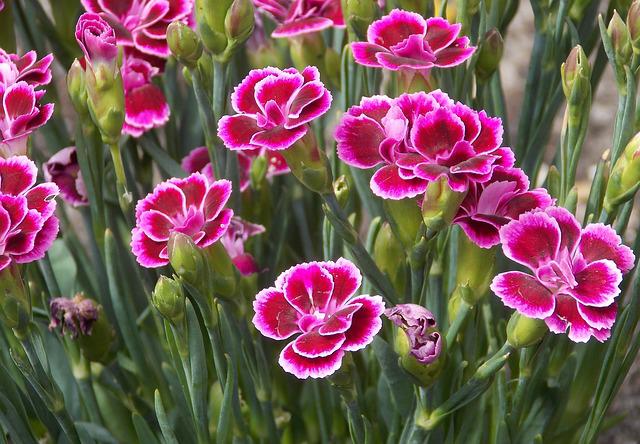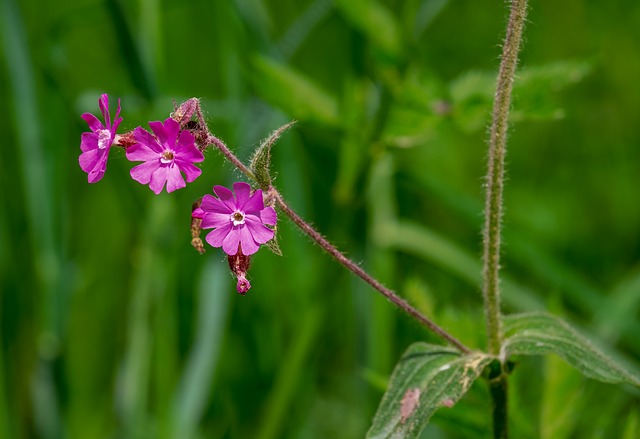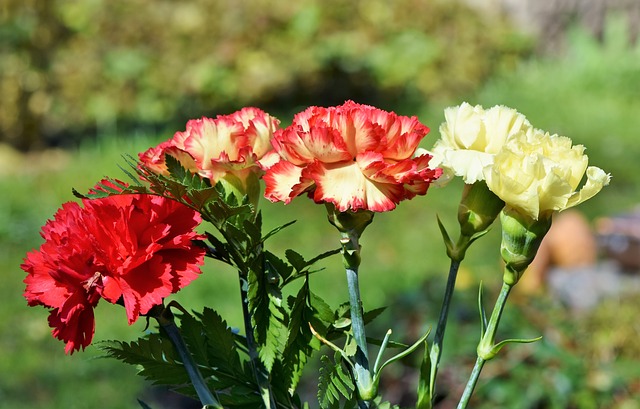Are Carnations Toxic to Cats? —Level of Toxicity

Carnation petals may be toxic to felines. Some sources claim that the petals can cause gastrointestinal problems and even death in cats if ingested in large amounts, so it would seem advisable to keep any blossoms away from your feline friend’s food and water bowls.
The tufted flowers transport me back to my childhood with their sweet, spicy scent of sugar and cloves. It has a pleasant, peppery, clove-like aroma with hints of flowers. Due to its spicy, peppery scent that deepens floral notes, carnation is frequently used in classical fragrances. Its combination with rose scent is particularly pleasing.
Carnation poisoning can have severe consequences for some cats, even if the symptoms are mild for the majority. Cats and carnations don’t mix, so let’s consider why. Keep an eye out for these potential dangers, and your feline companion will be safe and healthy for many years.
Table of Contents
How Serious Is It to Be Poisoned by Carnations?
Nobody likes to entertain the idea that their cat might have consumed something hazardous. The symptoms of carnation poisoning in cats are typically mild; however, the more carnations a cat consumes, the more severe the symptoms can become. The best course of action you can take is to keep your cat away from carnations if you want to prevent it from going through an experience like this that is stressful.
Your cat should avoid consuming any part of a carnation as it is poisonous. Whether your cat consumes the flower’s stem or itself, it will likely display discomfort. The majority of cats will recover from their illness. Coming into contact with these flowers is enough to make a few of the cats feel a little under the weather. If you find your cat rolling around in a neighbor’s garden and there are carnations present, you may have to deal with the effects of carnation poisoning even though your cat did not consume any of the toxic plants.

Signs and Symptoms of Carnation Poisoning
Carnation poisoning is a relatively mild illness compared to illnesses caused by other plants, which is good news for cat owners because no one wants to see their cat sick. Even though there is no natural antidote or treatment for this type of poisoning, it is in the animal’s best interest to seek the assistance of a trained veterinarian as soon as the symptoms become unbearable. While they are ill, this will prevent your cat from becoming dehydrated and worsening its condition. If your cat requires it, your veterinarian can also cause vomiting in them.
- Drooling: If your cat is chewing on a carnation but hasn’t swallowed it, drooling may be the first sign you notice. This tells you that their mouth might be bothering them.
- Diarrhea: is a common side effect of eating carnations and may cause your cat to have accidents around the house.
- Vomiting: Your cat will almost certainly vomit if it has consumed some form of the carnation plant and is attempting to flush it from its system.
- Pain in the Abdomen: Cats who have consumed carnations frequently experience pain in this area. Your cat may vocalize this suffering to get your assistance as their pet parent in easing their suffering.
Treatment and Recovery
You still take your cat to the vet even though there isn’t much your doctor can do for carnation poisoning. Your veterinarian might need to administer an emetic drug to make you vomit. This will aid in clearing your cat’s body of the toxins they have consumed, along with intravenous fluids. Additionally, your veterinarian might give your cat medications to coat its stomach and prevent further irritation from the sap of the carnation.
Fortunately, most cats recover in a matter of hours. The veterinarian for your cat might advise increasing water intake for a few days to flush out any lingering toxins. If this is the case, heed their suggestions, and hopefully, your cat will quickly revert to its former state.

How Do I Get My Cat To Stop Eating Carnations?
Trying to tell a cat what to do is a big job. Anyone with a cat knows that they can be very stubborn when they want to be. It’s the same as keeping them away from carnations or other dangerous plants. They will probably want to find out more if the chance comes up.
If you don’t have any carnations in your house or garden, your cat won’t be able to eat them. That isn’t always possible, though. If you want to put carnations on display in your home, don’t put them where your cat can get to them. Another big problem is putting carnations near the house, especially if your cat goes outside. If you can’t live without carnations in your garden, plant them where your cat won’t go. Also, don’t plant them near plants like catnip that your cat might be interested in.
